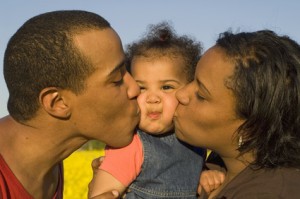7 Things You Can Do to Raise a Healthy Adult
Life is filled with risk factors and protective factors. Children, in particular, are susceptible to these risk factors and protective factors. In fact, you may have heard talk about Adverse Childhood Experiences (ACEs) and how they impact our children even into adulthood. Specifically, ACEs include abuse (physical, emotional, or sexual), neglect (physical or emotional), and household dysfunction (mental illness, domestic violence, incarcerated relative, substance abuse, or abuse). The more ACEs a child experiences, the greater the risk that child will suffer from depression or poor mental health. In addition, the more ACEs a child experiences, the more likely they will struggle in developing social emotional supports as an adult. In other words, these childhood traumas impact an adult’s level of life satisfaction and functioning. That’s bad news.

BUT…there is good news. Children can experience protective factors as well. These Positive Childhood Experiences (PCEs) also have an impact on our adult lives. Recent research identified 7 Positive Childhood Experiences and their impact on adult life by surveying over 6,000 men and women over the age of 18. (Read another review here.) The seven PCEs included:
- Having the opportunity to talk with family members about their feelings.
- Feeling that their family stood by them during difficult times.
- Enjoying participation in community traditions and activities.
- Feeling a sense of belonging in high school.
- Feeling supported by friends.
- Having at least two non-parent adults who take a genuine interest in them.
- Feeling safe and protected by an adult in their home.
An adult who had experienced 6 or 7 of these as a child had a 72% lower chance of reporting depression or other mental health concerns than someone who experienced 0 to 2 of these PCEs. If they experienced 3 to 5 PCEs, they had a 50% lower chance of depression or other mental health concerns. In addition, those experiencing 6 or 7 PCEs reported “always” 3.53 times more often when asked about receiving social and emotional support as an adult than those who received only 0 to 2 PCEs. The most amazing discovery: the positive impact of PCE’s remained true even after accounting for Adverse Childhood Experiences.
What’s the takeaway? Children are more likely to have better mental health, less depression, and healthier relationships in adulthood if they experience these 7 positive childhood experiences. You can build these positive experiences right into the fabric of your family.
- Accept the expression of feelings. Weep with your children when they weep. Rejoice when they rejoice. Share their anger and celebrate their joys.
- Difficult times will arise, anything from their first broken heart to the loss of a pet to the loss of a friend from death. Stand by them. Comfort them. Let them feel your presence.
- Participate in community traditions. This may include community fireworks, scouting, sports, or weekly worship. Get involved.
- Remain involved in your child’s education. Visit the school. Volunteer to help with whatever club they join. Talk to their teachers. Do what you can to help them feel a sense of belonging in their school.
- Encourage your children to invite friends to your house. Have snacks available. Allow your child to take a friend on an outing. Get to know the parents of your children’s friends. Ask about your children’s friends.
- Get to know the adults in your child’s life and encourage their relationship with those you trust. They may connect with a coach, a family friend, an aunt or uncle, a minister. Encourage these positive connections. After all, it takes a village to raise a child.
- Help your child feel safe and protected in the home. The first step in this process is developing a secure, loving relationship with their other parent. Work on your marriage. Keep it strong.
Build these 7 positive childhood experiences into the fabric of your family. You’ll love the results. And your children will reap the benefits for their entire life!
-0 Comment-